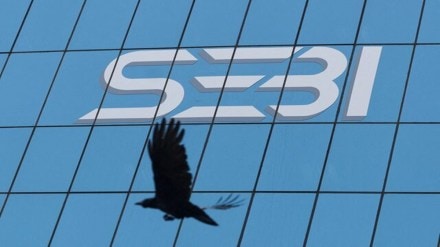In a major push towards making things easier for the broking community, the Securities and Exchange Board of India (Sebi) has decided to reduce the number of penalties on stock brokers from 235 to 90 – a drop of over 60%. In addition, it will also introduce a uniform penalty structure across exchanges to be paid only once to one exchange for the same violation, Sebi Chairman Tuhin Kanta Pandey told FE on Thursday.
“This technology-driven approach eliminates double jeopardy, lowers costs, and prioritises critical risks, fostering an efficient, interconnected, and compliant market,” said Pandey.
Technology-Driven Shift
A circular on the same will be issued soon that will treat penalties for material violations such as fund diversion, wrong reporting differently from those that are unintentional and technical in nature, as the latter need not be penalised heavily and some can be waived off by giving a warning.
As part of the rationalisation, Sebi reviewed a total of 235 penalty items. “Of these, 40 redundant penalties were removed, and 105 were classified as financial disincentives. This left 90 penalties,” Pandey said.
These 90 penalties were further rationalised as follows: 36 penalties were streamlined, 7 types of cases will receive advisory warnings instead of penalties for the first instance, and in 6 cases penalty caps are introduced. No changes were made to 29 penalties. Additionally, 12 new penalties were introduced to address gaps, Pandey elaborated.
Other measures such as, a technology-based common reporting mechanism for one-time submission of documents for stock brokers is also being introduced, aiming to reduce compliance burdens across exchanges.
Instead of submitting reports to each exchange, brokers will be allowed to use a single portal, starting with 70 compliance reports, Pandey added. The system will expand, adding more reports and enhancing efficiency, ensuring all exchanges receive necessary information without brokers repeating submissions, he said.
Stock brokers who are registered with multiple stock exchanges are currently required to submit compliance reports to all the exchanges with which they are registered.
Around 800 stock brokers who have multiple memberships with NSE and other stock exchanges, will benefit from this initiative. NSE has introduced a technology-based common reporting mechanism for stock brokers to submit their compliance reports.
Pandey has plans to implement a similar kind of reforms in Sebi itself. For example, Sebi’s multiple licensing requirements create redundant compliance efforts for entities with multiple businesses undergoing merger and acquisitions. Instead of submitting reports to each department, a common reporting portal can streamline the process, ensuring all divisions receive necessary data efficiently, Pandey said.
According to him this will reduce superfluous compliance, allowing focus on critical risks. By leveraging technology, Sebi can build a smart, compliant market that prioritizes significant risks and anticipates future challenges, enhancing efficiency and effectiveness.
This approach, starting with stock brokers, will expand to other sectors, fostering a highly technological and risk-focused regulatory system.
Till September, the annual inspection of stock brokers/ depository participants was conducted by each of the MIIs separately. Sebi September bulletin noted, “It unwarrantedly taxes the intermediaries due to frequent visits for inspections by different MIIs resulting in disproportionate diversion of resources leading to disruption in the routine operations of the entities.” To solve this, it was decided to have a joint annual inspection.
Through a consultation paper in September, the regulator proposed disruptions caused by global cloud service providers, glitches at market infrastructure institutions (MIIs), delays in KYC processing, back-office issues not affecting trading, payment gateway failures at banks or aggregators, and problems in decision-support tools such as charts or reports to not be counted as technical glitch.
According to Sebi annual report for FY25, during the year, 116 adjudication orders were passed against registered intermediaries, of which, maximum pertained to brokers (58), followed by investment advisors (12) and remaining against various other intermediaries/institutions.
